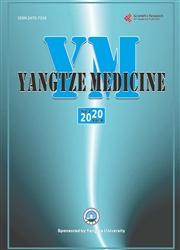A Study on the Correlation between Stressors and Psychological Behaviors of Nurses in Support of COVID-19 Ward
引用次数: 1
Abstract
COVID-19 has been a hot topic of research in medical journals. There are many articles which have been published on the genetic sequencing, pathology and other medical conditions associated with COVID-19, however, there are very few articles which acknowledge the psychological and behavioral aspects of front-line medical workers especially nurses. The purpose of the study is to understand the stressors, psychological behavior status and the correlation between psychological behavior and stressors for nurses who served in COVID-19 ward. The general information questionnaire, the nurse job stressor scale in Chinese, and the emergency public health incident questionnaire were used to survey 282 nurses in Jingzhou Central Hospital who supported COVID-19 ward. The result shows that the average work stress of nurses in this study was 1.40 ± 0.54 points. The top 3 dimensions were conceptual stress (1.67 ± 0.68), working environment stress (1.57 ± 0.60), and occupational hazard stress (1.57 ± 0.66). With different marital status, the average scores of stress are different, and the difference is statistically significant (t = 2.139, P = 0.034). For nurses in COVID-19 ward who faced sudden public health crisis, the self-evaluated psychological score of nurses in COVID-19 ward averages 1.40 with a deviation of 0.54. In our study, fear had the highest influence on psychological behavior, while the lowest was the compulsive-anxiety factor. There was a positive correlation between the stressor scores and the psychological behavior scores (P < 0.01). The conclusion is that the pressure of nurses supporting COVID-19 ward is under moderate pressure, and the psychological behavior is moderately responded with a few nurses having psychological behavior deviation.新冠肺炎病房护士压力源与心理行为的相关性研究
新冠肺炎是医学期刊研究的热点。关于新冠肺炎的基因测序、病理学和其他医学状况,已经发表了许多文章,但很少有文章承认一线医务工作者,尤其是护士的心理和行为方面。本研究旨在了解新冠肺炎病房护士的压力源、心理行为状况以及心理行为与压力源的相关性。采用一般信息问卷、护士工作压力源中文量表和突发公共卫生事件问卷对荆州市中心医院支援新冠肺炎病房的282名护士进行调查。结果表明,本研究中护士的平均工作压力为1.40±0.54分。前3个维度分别为概念压力(1.67±0.68)、工作环境压力(1.57±0.60)和职业危害压力(1.57%±0.66)。不同婚姻状况下,压力的平均得分不同,差异具有统计学意义(t=2.139,P=0.034),新冠肺炎病房护士自我评估心理评分平均为1.40分,偏差为0.54分。在我们的研究中,恐惧对心理行为的影响最大,而强迫性焦虑因素的影响最小。压力源评分与心理行为评分呈正相关(P<0.01),新冠肺炎病房护士压力中等,心理行为反应中等,个别护士存在心理行为偏差。
本文章由计算机程序翻译,如有差异,请以英文原文为准。
求助全文
约1分钟内获得全文
求助全文

 求助内容:
求助内容: 应助结果提醒方式:
应助结果提醒方式:


